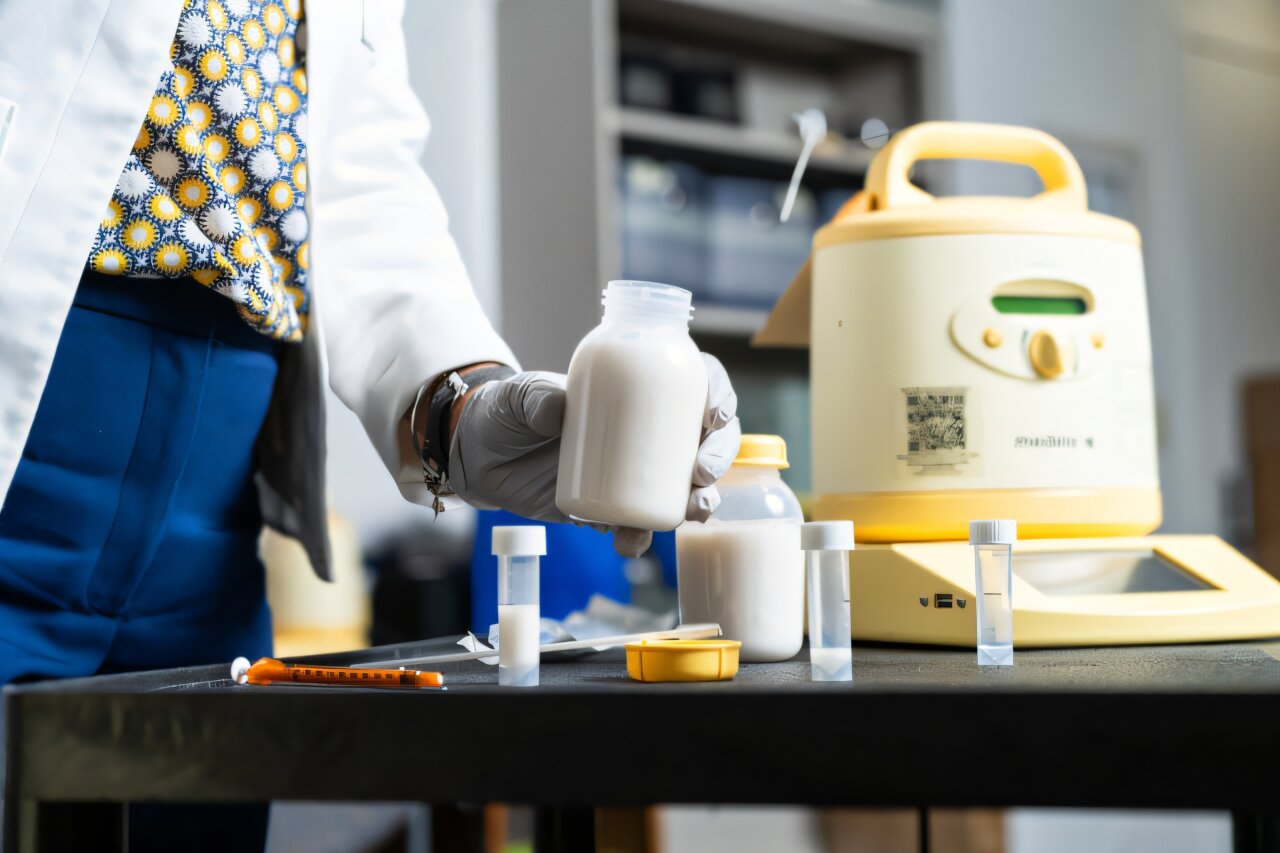
It began as a conversation in Chicago last fall among a group of researchers who shared a persistent question: Why do so many mothers struggle to provide exclusive breast milk feedings to their infants? During August, which is National Breastfeeding Month in the U.S., we focus on a group of researchers, including several from the UF College of Nursing, who are working to provide clearer answers.
Subscribe to our newsletter for the latest sci-tech news updates.
More than half of breastfeeding mothers—about 55%—are not able to successfully provide exclusive breast milk feedings to their babies for the first three months, according to past research, which is far below recommendations by international and national health organizations.
That Chicago conversation culminated in the recently published special issue of Breastfeeding Medicine, featuring eight articles aimed at advancing the biological, social and systemic factors that impact breastfeeding.
Leslie Parker, Ph.D., APRN, a UF College of Nursing professor and associate dean for research, was among the featured experts and was the issue's co-editor.
"We need to stop lamenting about an undesired situation after the fact and focus our attention where it should be with the aid of the framework provided by Drs. Paula Meier and Leslie Parker and their colleagues in this landmark special issue," wrote Arthur Eidelman, editor-in-chief of Breastfeeding Medicine. "Simply put, the war to support breastfeeding is already being lost in the immediate weeks and months after the birth of the infant."
Each article focuses on different aspects of lactation challenges. Parker highlighted her decades of research focused on optimizing lactation in mothers of preterm infants and infants admitted to the neonatal intensive care unit.
"There is a switch that turns milk production on in a mother's body. But for some women, this process is delayed, and thus they may not produce enough milk for their babies," Parker said. "This delay is especially significant for mothers who have complications during childbirth. In these cases, their milk might come in slower than expected, and this can affect their long-term milk production."
Marion Bendixen, Ph.D., M.S.N., R.N., a UF College of Nursing assistant professor, is the lead author of a study focused on sodium levels in breast milk in the first few days after birth and how often measurements should be taken. Qinglin Pei, Ph.D., a UF College of Nursing associate professor, is a co-author.
The consortium's ultimate vision is to make breastfeeding and lactation care more personalized. They hope biomarkers, particularly sodium levels in breast milk, can result in more personalized lactation care, especially for mothers at risk for lactation problems.
Researchers say that eventually, by using a small sample of breast milk, these biomarkers could even track which specific interventions are effective in boosting mothers' milk production—thus offering targeted, individualized treatment, rather than one-size-fits-all advice.
One day, a simple biomarker test could allow primary care providers and lactation consultants to provide tailored advice to each mother.
"At the UF College of Nursing, we are proud to support innovative research that directly addresses the challenges faced by new mothers," said UF College of Nursing Dean and UF Health System Chief Nurse Executive Shakira Henderson, Ph.D., D.N.P., M.S., M.P.H, M.B.A.
"Dr. Leslie Parker and her team's work in lactation science is a perfect example of how nursing expertise can transform care, offering personalized solutions that empower mothers with the knowledge and tools they need for a healthier start with their babies."
The team hopes to take their work even further. In the next phase, they plan to examine possible interventions that could help mothers struggling with low milk production. They envision a future where every mother is able to make informed decisions about her lactation experience.
The group will meet again in Chicago in September.
"Supporting mothers who struggle to provide enough milk to meet their infants' nutritional needs is essential," Parker said. "Even providing a small amount of mother's milk to infants makes a difference in improving health."
More information: Special Issue: Early, Unplanned Cessation of Lactation in Healthy and At-Risk Dyads: Priorities for Research and Practice. www.liebertpub.com/toc/bfm/20/7
Provided by University of Florida
This story was originally published on Medical Xpress.





